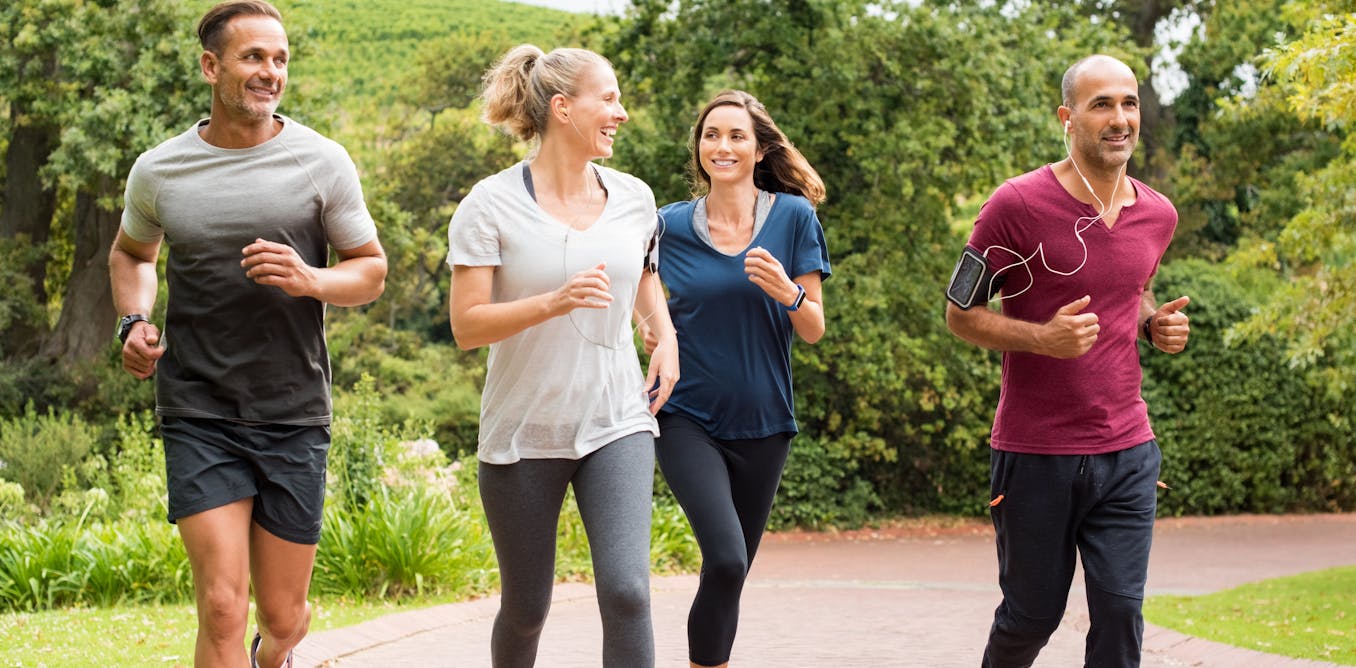Blog
Which is better – team sports or solo exercise?
Exercise is not only good for your physical health, but also good for your mental health too. Indeed, many people even take up exercise as a way improving their mental condition. But is every exercise equally beneficial and does it matter whether you do it alone or in a group?
One noteworthy study examined how the environment in which people exercise relates to mental health. The study included college students aged 16 to 24, comparing those who participated in team sports, informal fitness groups (such as yoga classes or running groups) and those who exercised alone at least once a week. A follow-up was carried out six months later to measure mental health status.
The study found that students who engaged in group physical activity (either in team sports or informal fitness groups) had better mental health than those who exercised alone. Students who exercised in groups were also more physically active, doing almost twice as much exercise as those who exercised alone. They also reported feeling more connected to the people around them.
Researchers suggest that the reason students who exercise in groups may have better mental health may be due to the social support network they develop during group exercise classes.
In my own research, I also examined how informal soccer programs helped with mental health recovery. My colleagues and I did two studies, one looked at social football initiatives and the other in the football programs within NHS mental health services. We interviewed people who played football during the sessions, and players, coaches and healthcare workers took part in the activities together.
We found that participants appreciated group activities because they could connect with people with similar interests and experiences. Participants also found that being able to choose their favorite sport influenced their mental health. These programs can support mental health recovery, enabling participants to lead hopeful and fulfilling lives despite any difficulties limitations caused by mental illness.
However, our research suggests that physical activity itself may not be as important as the reason why a person exercises.
The reasons why we exercise
The motivations behind exercise also influence mental health. The relationship between motivation and mental health can be explained by: self-determination theorywhich proposes that our personal experiences, alongside cultural and social factors, influence why we decide to participate in some types of physical activity.
We are more likely to reap the mental health benefits of exercise if the environment makes us feel that way more choice and controlwe feel more capable or likely to succeed, and when we have stronger connections with others. If these aspects are perceived in the environment, we tend to participate in activities because they are enjoyable or personally important to us. This is the so-called “autonomous motivation”. Research shows that when people do things for these reasons, they feel happier and have more energy.
On the other hand, we may feel that we have less choice or control, or that we are not good at what we do negative impact on well-being. When we feel this way, we usually take action to avoid feeling guilty or punished – or to receive praise or attention from others. This is the so-called “controlled motivation”.
Luisa Molinero/Shutterstock
While these reasons may be an effective way to start exercising, we are much less likely to stay active in the long run because we don’t do anything for our own pleasure. Most importantly, this type of motivation has been shown have a negative impact on mental health.
For example, if I decide to run on my own because it’s important to me, it will probably be better for my mental health than if I play a team sport in which I only participate because I’m worried about letting my teammates or coach down. This is because I choose to practice this sport not for my own reasons, but for other people’s sake.
Research focusing on why people play team sports, as well as their mental health Great Britain AND Ireland shows how important the right type of motivation is in relation to mental health.
Team members who could make choices about training, felt connected to their surroundings, and performed well in sports enjoyed better mental health. However, if these aspects were missing, athletes’ mental health would be worse, showing how important it is to create the right environment, regardless of activity.
Finding ways to give individuals more choice and help them develop relationships with others can be important for trainers, exercise instructors and even gym friends so that people can better improve their mental health through the exercise they do. The activity itself may not predict mental health benefits – but the way it makes people feel does.
So, is it better to exercise alone or in a group? In practice, there is evidence that group activities may be more beneficial for mental health. But the reason why a person exercises and the environment in which they exercise are equally important. Put simply, choosing an activity that you love – whether you do it because it makes you feel good or because it allows you to be part of a community – will bring the best improvements to your mental health.

